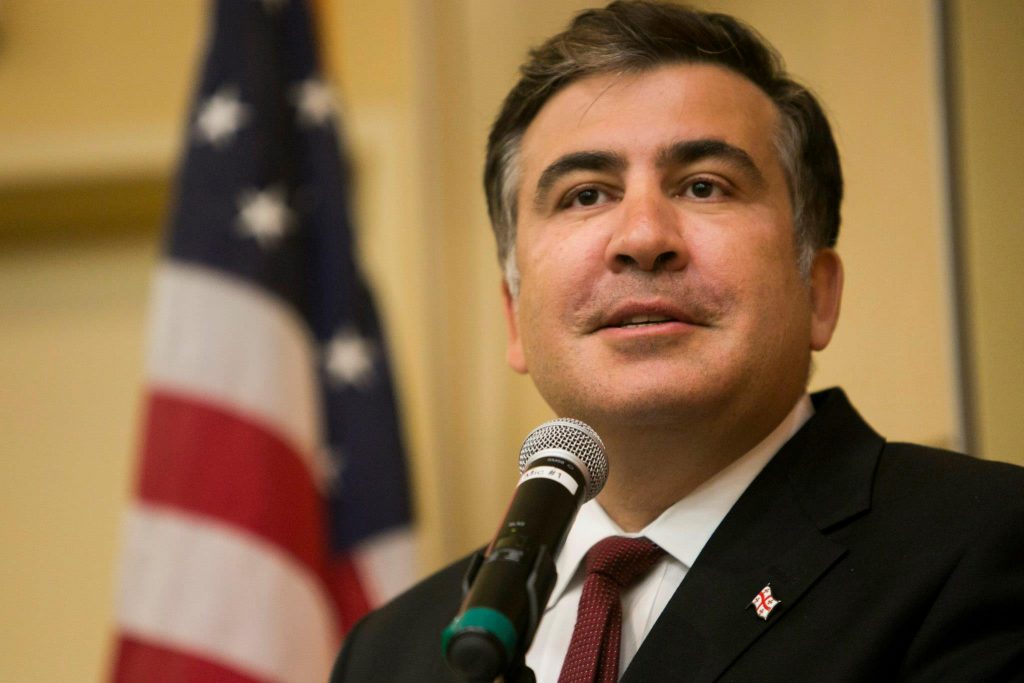The European Court of Human Rights (ECHR), in a sitting on March 1, decided to join jailed ex-President Mikheil Saakashvili’s two complaints lodged against the Georgian government and declared them admissible for review.
Saakashvili appealed to the court on January 27, 2020, arguing that his conviction by the Tbilisi City Court on June 28, 2018, for his alleged role in the physical assault of former MP Valeri Gelashvili “had been based on untested hearsay evidence.” He argued the decision violated Article 6 (right to a fair trial) of the European Convention on Human Rights.
In a separate application on May 25, 2020, he argued that the guilty verdict on January 5, 2018, over the presidential pardoning of convicts in Sandro Girgviani’s high-profile murder case was also based on “untested hearsay evidence” and violated Article 6 (1/3d), as well as Article 7 (no punishment without law).
Saakashvili further maintained that the first-instance court judge on the pardoning case had lacked independence and impartiality. He also insisted it had not been possible for him to foresee that the pardoning — right conferred on him under the office of President and Head of State — could attract criminal liability.
In both cases, Saakashvili claimed “the authorities’ hidden agenda was to use the criminal-law machinery” against him for political persecution, in violation of Article 18 of the Convention — limitation on the use of restrictions on rights — in conjunction with Articles 6 and 7.
GD-led Government’s Positions
The Georgian government objected to the admissibility of these cases on four grounds. The Georgian Dream-led government argued that regarding the appeal on the pardoning case, Saakashvili did not comply with the six-month time limit set under Article 35 of the Convention, as he took to the ECHR in May 2020, a year after the domestic court’s final decision in May 2019.
It also argued that Saakashvili’s arguments against the domestic judge were ill-founded and insufficient to doubt the justice’s impartiality.
As for the alleged violation of Article 7 against Saakashvili, the government maintained Saakashvili has been convicted not because he used his right to pardon but over the abuse of this right by issuing promises to ultimately derail the ongoing probe into the murder case.
Finally, the government objected that in both applications Saakashvili’s complaints under Article 18 of the Convention could not be relied on in conjunction with either Article 6 or Article 7. While article 18 stresses that the restrictions to rights and freedoms should be applied only for purposes for which they have been prescribed, the government viewed Articles 6 and 7 as having an “absolute” nature and not subject to permissible restrictions.
The Court joined government’s objections with regards to the Article 18, but dismissed them with regards to Article 35, in that greenlighting further review of the case.
The decision notes that the Court also informed the Government of Ukraine of its right to intervene in the light of Saakashvili’s Ukrainian nationality, but it opted not to use the right. Georgian judge Lado Chanturia withdrew from the case.
Mikheil Saakashvili, President of Georgia in 2004-2013, is currently serving a six-year prison term after he was sentenced in absentia in 2018 on two separate abuse of power charges – three years for pardoning the former police officials, convicted in the high-profile murder case of Sandro Girgvliani, and six years for organizing an attack on opposition MP Gelashvili.
The former President is also charged with misappropriation of public funds, exceeding official authority in the 2007 anti-government protests case, and illegal border crossing.
Saakashvili denies all charges as politically motivated.
After leaving Georgia in 2013, he became a Ukrainian citizen, holding political positions a governor of Odesa under ex-President Petro Poroshenko and later as a chair of the Executive Reform Committee under incumbent Volodymyr Zelenskyy.
Saakashvili was arrested in Georgia on October 1, 2021, on the eve of local elections, following his unexpected return to the country from exile in Ukraine.
Read Also:
This post is also available in: ქართული (Georgian) Русский (Russian)

